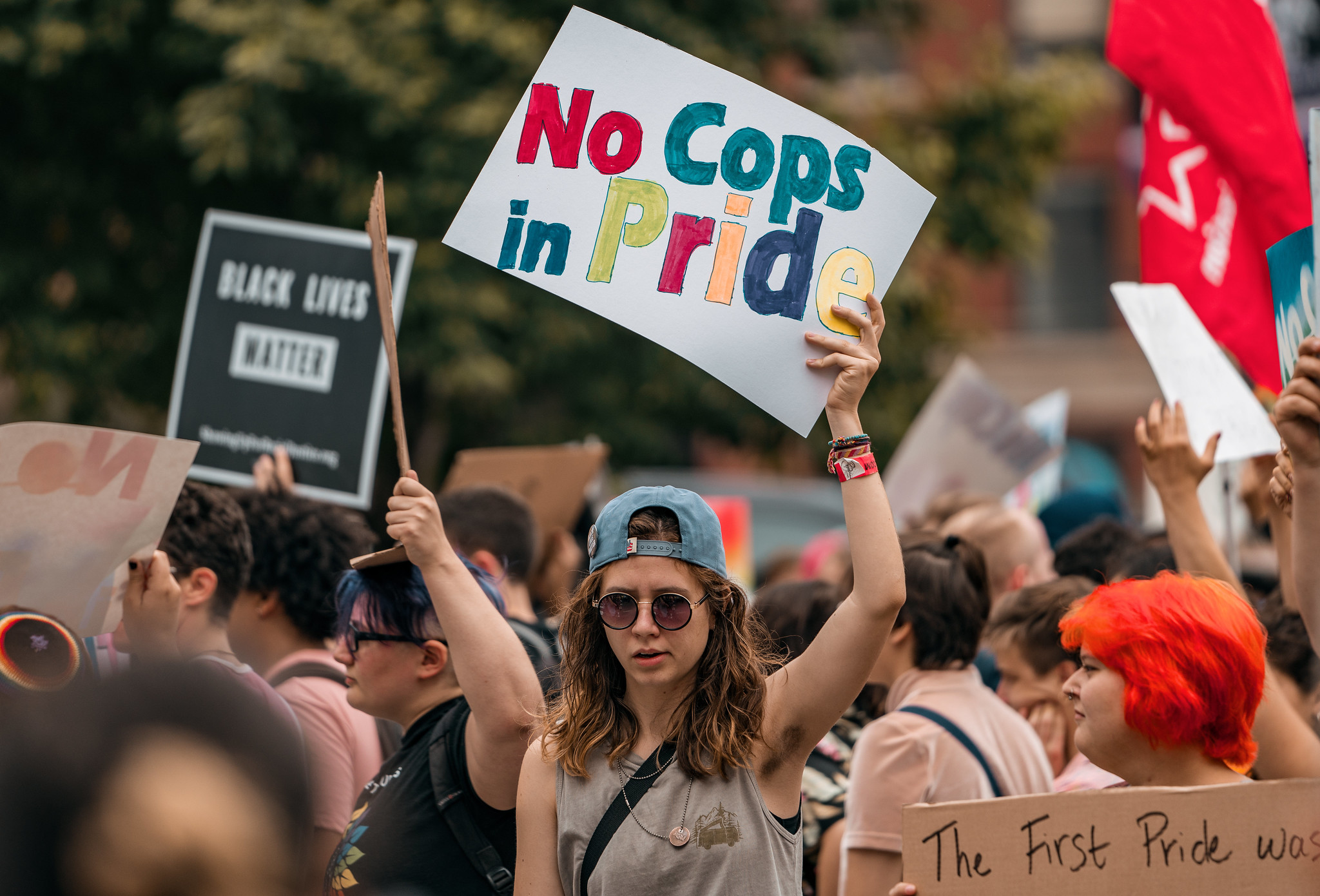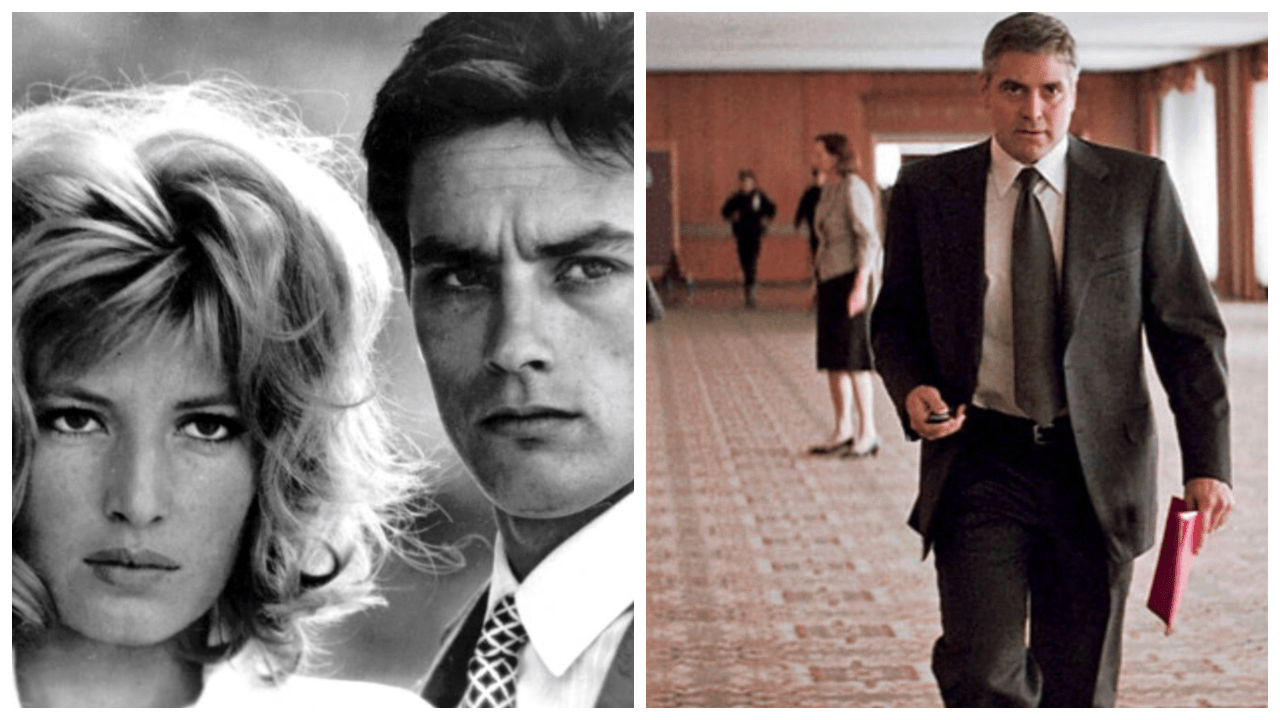OutFront Minnesota, the largest LGBTQ+ advocacy group in the state, announced last month that it will not participate in this weekend’s Twin Cities Pride events or march.
In a May 12 statement, OutFront cited “an overly significant police presence, public statements on Black Lives Matter events, and individual comments made by various staff and volunteers representing TC Pride” among the reasons for withdrawal. On May 14, Twin Cities Pride released its own statement expressing regret at OutFront’s decision, in which executive director Dot Belstler and board chair Felix Foster said they felt bound by law to have police present providing security.
“The Pride March impacts traffic,” Pride’s statement read, “and we are legally required to have police and traffic enforcement in place for the safety of participants and spectators.”
OutFront executive director Kat Rohn, who joined the organization on May 18 (after the decision to not attend Pride was made), noted that the presence of police was especially troubling in light of recent findings from the Minnesota Department of Human Rights about widespread violence and abuse in the Minneapolis Police Department. Rohn also pointed to interactions between OutFront staff and security at past Pride events, and what they describe as a “history and a pattern” of abuse. (OutFront declined to specify what the behaviors from TC Pride staff and volunteers were.)
This isn’t the first year a police presence at Pride has been a point of contention. In 2017, the Twin Cities Pride organization announced plans to ban police officers from the parade following the acquittal of officer Jeronimo Yanez in the shooting death of Philando Castile.
Pride reversed its decision after complaints from Minneapolis and St. Paul police, and Beltser apologized “to the law enforcement community for neglecting to communicate and consider input for other possible alternatives prior to releasing the details of this decision.” That year, protesters held up the parade with a die-in and a moment of silence remembering Castile.
In 2018, following the killing of Thurman Blevins by MPD officers just days before Twin Cities Pride, protesters again marched before the parade and delayed the proceedings. In 2019, for the third consecutive year, protesters at Pride chanted, “No cops at Pride” and “Pride for the people.”
Still, police have regularly provided security at Pride events, and even had their own booth in 2018. Law enforcement agencies like the Minnesota National Guard and the FBI have also had booths for advertising and recruitment purposes, though neither will be present in 2022. The MPD will also not have a booth this year.
Twin Cities Pride says its hands are tied where it comes to allowing police at its events. “We know the most upsetting issue for many members of our community is the presence of police officers at our Pride March,” its May statement read. “A Minneapolis ordinance mandates a city police presence at events as big as ours.” Last year, the nonprofit called on the city of Minneapolis to rescind rules that seem to require the event to have police present to provide security.
But there actually is no city ordinance requiring police at a large-scale event like Pride to provide security or direct traffic, or for any other reason. According to the document outlining security requirements for large public events, off-duty police can be contracted for security, but organizers are free to hire a variety of “security personnel,” including “private security officers [who] are not armed and do not have any police powers.”
Organizers of special events like Pride are required to submit a security plan to the Minneapolis Police Department for approval through a Special Events Security Plan form, which includes questions like “Staff: Contracted licensed security agents? Off-duty police officers? Employees or volunteers?” and “Philosophy: Respectful enforcement? Escorting away from the premises? Working in teams?”
The only city ordinance that could compel police to be anywhere near Pride or the parade is municipal code 466.140, which covers who can regulate the flow of traffic during something like the Pride parade. This is left to two types of municipal employees: police officers and traffic control agents. (Traffic Control is a separate department from the police, part of Regulatory Services, which handles things like parking tickets, parking enforcement during street cleaning and plowing, and “traffic flow management for large events.”)
“There is ordinance language that specifies that only Minneapolis sworn police officers and traffic control agents are permitted to conduct traffic in the public right of way, though security is open to however the organizers choose to provide for a safe environment for event participants,” says Minneapolis city spokesperson Sarah McKenzie.
Asked for clarification—that this means police are not, in fact, required to make the event happen—McKenzie confirmed that there is no obligation for police to be physically present at large public events like Pride. Security can be privately hired and unarmed, and traffic can be directed by unarmed traffic control agents.
Felix Foster, board chair at Twin Cities Pride, says police will be at the Pride 2022 parade at “required intersections and street closures” for the purposes of traffic control. The goal, he says, is to change that over the coming years, shifting the responsibility to traffic control agents.
When it comes to police and Pride, the organization is bound more by inertia and tradition than it is by any city ordinance. “I wouldn’t be sure that [the Minneapolis Police Department] would know” if city ordinances require police security, Foster says. “With police, things just happen because that’s the way things happen, not because of the letter of the law.”
For OutFront, that’s just not good enough. The advocacy group also opted not to participate in scaled-back Pride 2021 events—the first since the murder of George Floyd by Minneapolis police—which coincided roughly with the departure of previous executive director Monica Meyer after two decades with the organization. Rohn described OutFront’s 2021 decision as an informal one, which became more formal this year.
The Twin Cities isn’t the only region grappling with issues of policing and Pride. San Francisco just reached a compromise that lets a small number of police march in uniform; NYC Pride has banned uniformed officers from marching until 2025. Just this week, Seattle police announced they will not be marching this year.
“I think this is an active conversation around the globe around what Pride events look like,” Rohn says. “Policing within the LGBTQ community has been deeply problematic. I mean, you look at national surveys… roughly 58% of folks who had interacted with police officers reported mistreatment, or some kind of stereotyping or discrimination.”
OutFront’s executive director says the organization is open to returning to Pride. “I think one of the things that we're certainly open to is a dialogue… to see if their organization is aligning on other issues of racial justice, that align with our values and our understanding of how Pride in our community interactions can be for the future. I think that would be a big factor.”






